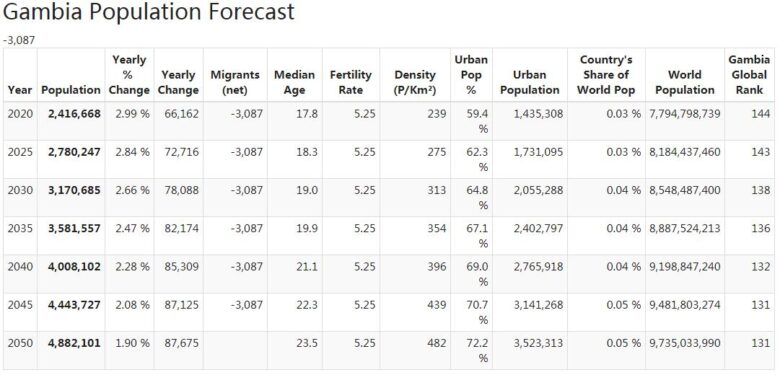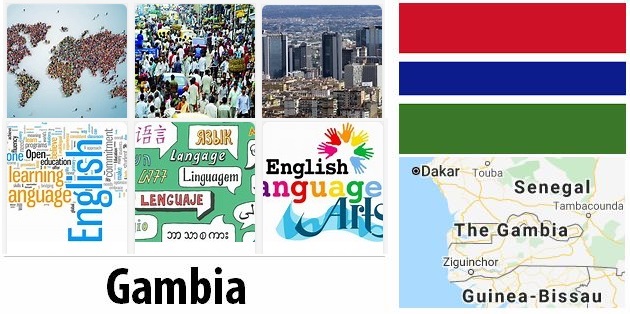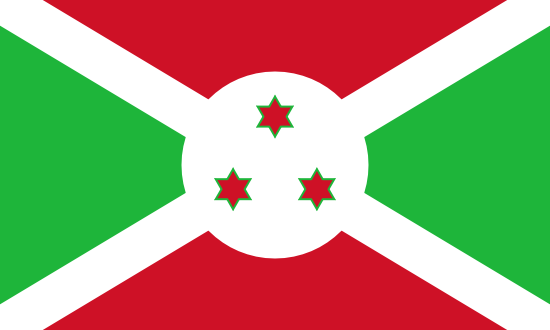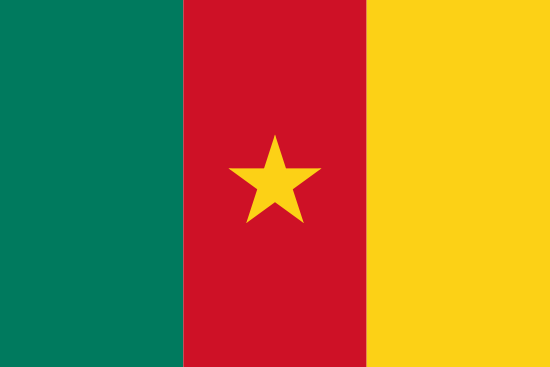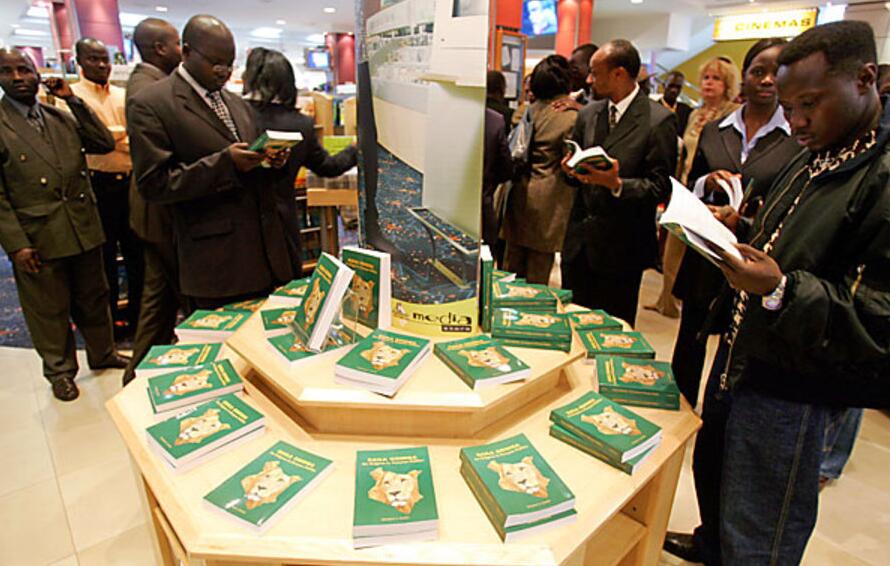Gambia Population and Language
The Gambia is one of the most densely populated countries in Africa. Of a handful of larger groups of people, Mandinka is the most; they make up almost half the population. Most Gambians have one of four major local languages as their mother tongue. Around half the population also speaks English.
The people groups are largely the same as in neighboring parts of Senegal. In addition to mandinka (also called mandé, malinke, mandingo), the largest groups are fulani (fula, peul, pulaar), wolof, diola (jola) and soninke (serahule). Mandinka is traditionally a farmer in the countryside, while Fulani is a herdsman and wolof trader. With the increasing move into the cities, however, the old patterns have loosened up.
- COUNTRYAAH.COM: Key populations estimated size and data of Gambia, including population density of how many people per square mile. Also included are facts for population and language.
Around a quarter of the residents now live in the metropolitan area Banjul-Kanifing-Serrekunda on the coast. The capital Banjul, located on an island in the mouth of the Gambia River, borders the country’s largest city of Serrekunda. The city of Brikama is also growing together with Serrekunda.
The population is growing rapidly in numbers, mainly as a result of high birth rates. The population is young; almost four in ten residents are under 15 years of age.
Nearly a fifth of the residents were not Gambian citizens in 2010, but came from some neighboring country such as Senegal, Guinea or Guinea-Bissau. In 2014, over 11,000 Senegalese refugees were registered with the UN refugee agency UNHCR in The Gambia. An estimated half a million Gambians are estimated to live in other countries, especially in the UK, other Western Europe and the United States.
English was the official language until 2014, when the then President Jammeh decided to change this. According to him, English was a relic of the colonial era. The local languages, such as mandinka, wolof, fulani and diola, all belong to the large family of Niger-Congo languages.
FACTS – POPULATION AND LANGUAGE
Population
mandinka (approx. 50%), fulani, wolof, diola and others
Number of residents
2 100 568 (2017)
Number of residents per square kilometer
208 (2017)
Percentage of residents in the cities
60.6 percent (2017)
Nativity/birth
39.5 per 1000 residents (2016)
Mortality/mortality
8.1 per 1000 residents (2016)
Population growth
3.0 percent (2017)
Fertility rate
5.4 number of births per woman (2016)
Percentage of women
50.5 percent (2017)
Life expectancy
61 years (2016)
Life expectancy for women
63 years (2016)
Life expectancy for men
60 years (2016)
Language
English has had official language status until March 2014. Among the local languages are mandinka, wolof, fulani and diola.
2013
December
UDP and PPP form an alliance
Opposition parties UDP and PPP as well as the newly formed Gambia morality Congress (Gambia Moral Congress) comes together in an alliance, Gambia united for change (Gambia United for Change), in order to challenge Jammeh in the presidential election to be held in 2016.
UDP leaders are sentenced for revival
A senior UDP leader, Amadou Sanneh, is sentenced to five years in prison for incarceration after he wrote an open letter in support of two party comrades who sought asylum in Europe. The two party friends, who failed to leave the country, are also sentenced to five years in prison.
November
The Gambia breaks with Taiwan
The Jammeh government breaks diplomatic relations with Taiwan, opening the door for a closer ties with China. President Jammeh cites “strategic national interests” as grounds for the decision but makes no mention of relations with China. The Chinese government says it has not exerted any pressure on the Gambia.
June
The Minister of Justice is dismissed on charges of corruption
Justice Minister Lamin Jobarteh and another senior government official are dismissed, accused of, among other things, corruption, negligence and abuse of power.
April
The EU freezes aid to the Gambia
The lack of respect for human rights in The Gambia is causing the EU to freeze some of its aid to the country and the US abolishing the trade benefits Gambia has had on the US market.
The opposition boycott local elections
Six of the country’s seven opposition parties boycott the local elections. In addition to APRC, only NRP and a number of independent candidates participate. The APRC wins 104 of the 114 seats, while the remaining 10 seats go to independent candidates. In 69 of the 114 electoral districts, only the APRC has candidates.
January
Reform demands are rejected
Jammeh’s government rejects EU reform demands and accuses the Union of trying to create a puppet government in The Gambia. A mass demonstration against the EU is being held in Banjul. The EU suspends the political dialogue with the Gambia until July of the same year, when it resumes.
The Gambia is urged to implement reforms
The Gambia’s largest donor EU calls on the JammehS government to implement 17 reforms, including the reintroduction of a moratorium (about a temporary halt) against executions of the convicted and easing several of the country’s harsh media laws. The EU also calls on Jammeh to reopen the independent media that the government has previously closed. The Union also wants foreign diplomats to be allowed to visit Gambia’s prisons.
